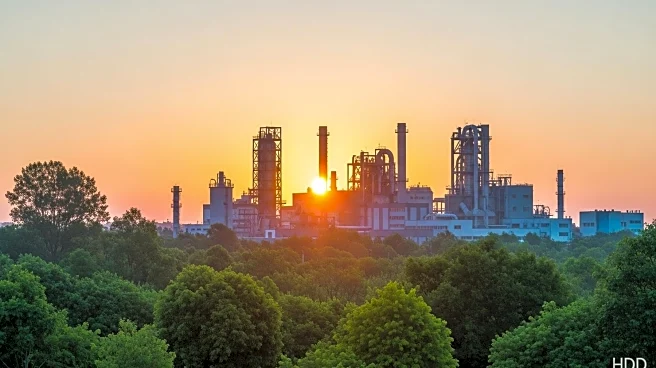What's Happening?
Bangladesh's manufacturing sector, a key driver of economic growth, faces significant challenges despite past successes. The sector's contribution to GDP has grown substantially, but recent global events like the COVID-19 pandemic and the Russia-Ukraine crisis have led to inflation and economic pressure. The sector struggles with energy shortages, policy instability, and a skills gap, impacting production and employment. The government is urged to implement strategic reforms in energy policy, infrastructure, and workforce development to sustain growth.
Why It's Important?
The manufacturing sector is crucial for Bangladesh's economic stability and job creation. Addressing its challenges is vital for maintaining growth and achieving middle-income status. The sector's health affects global trade dynamics, especially in the Ready-Made Garments industry, a major export contributor. Effective reforms could enhance Bangladesh's competitiveness and attract foreign investment, impacting regional economic landscapes.
What's Next?
The government is expected to prioritize energy policy reforms and infrastructure development to support the manufacturing sector. Stakeholder engagement and transparent policy-making are essential for long-term stability. The focus on workforce development aims to equip the labor force with skills for future industrial needs, aligning with global technological advancements.
Beyond the Headlines
The sector's challenges highlight broader issues in economic policy and governance, emphasizing the need for sustainable development strategies. The integration of technology and education reforms could transform Bangladesh's economic model, fostering innovation and resilience.









